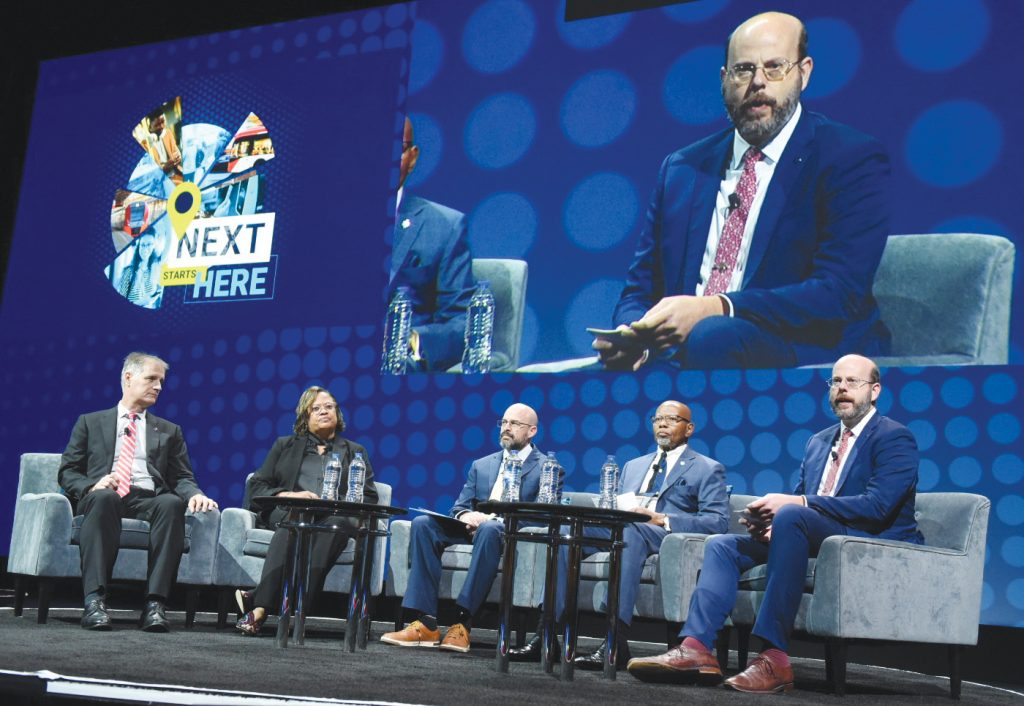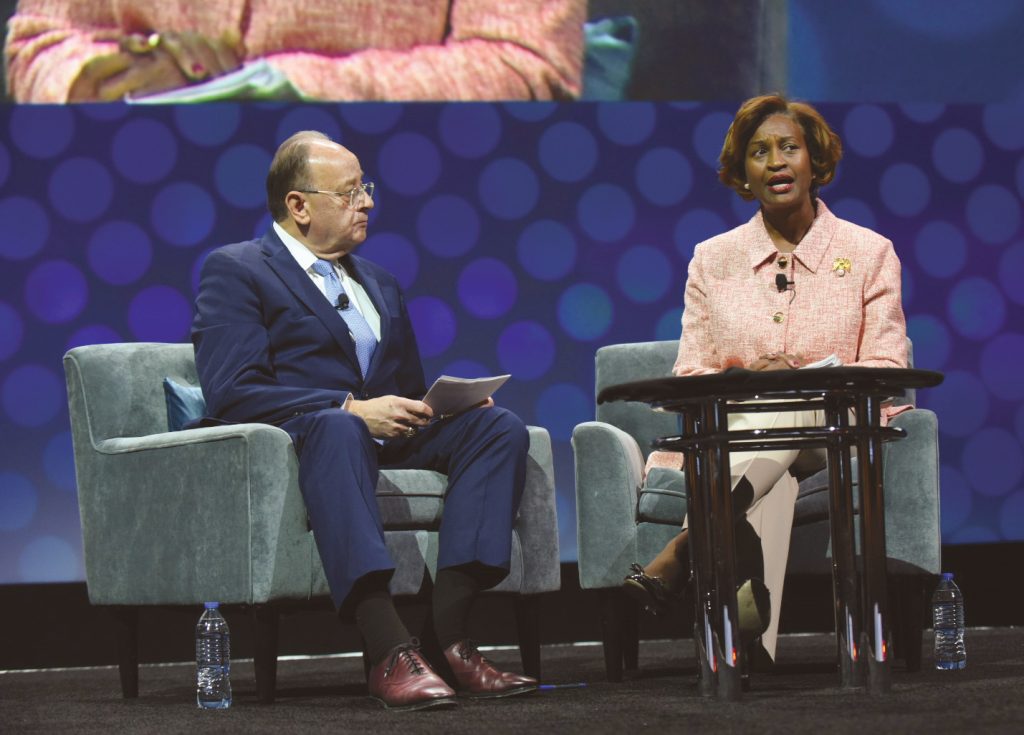Safety, Funding and Bus Procurement Take Spotlight in FTA Update Session
10/20/2023

FTA is actively developing plans to support public transit agencies as they face safety issues and expected funding struggles, as well as delivering on the more exciting aspects of the job, reported FTA Administrator Nuria Fernandez in the Federal Partners Update session.
In addition to new and expanded programs for accessibility and rail car replacement and a sixfold funding increase for low- or no-emissions vehicles and stations, FTA has invested $63 billion in Bipartisan Infrastructure Law (BIL) funding to almost 8,900
projects in the past two years, Fernandez told APTA President and CEO Paul P. Skoutelas.
Skoutelas asked about FTA plans to address the growing problem of assaults on transit drivers, and “the fiscal cliff” looming for transit agencies when pandemic relief support ends.
FTA and USDOT are both focusing on operator safety, Fernandez said, through increased training and guidance, stricter reporting requirements and discussions with Congress and labor unions about needed changes. To address the fiscal cliff, FTA has proposed allowing public transit agencies to use formula funding for operations and wants to see cities and states continue their funding support for transit, as well. “You can’t close the gap—the gap is really staggering—and you can’t close that gap with cost-containment only,” she said.
Following Fernandez’s comments, an FTA panel focused on bus procurement. Paul Kincaid, associate administrator for communications and congressional affairs, introduced the panelists: Matthew Welbes, executive director; Bruce Robinson, acting associate administrator for program management; James Harper, director of acquisition management and chief business advisor; and Yvette Taylor, Region 4 administrator.
Supply chain issues, scarcity of batteries due to an industry-wide shift to low/no-emissions vehicles, plus the high-tech nature of new buses have all contributed to long delays in bus deliveries and financial instability among manufacturers, Kincaid summarized. He asked the panelists about the impact of bus order customizations, how agencies could receive priority consideration for funding opportunities, and how they could streamline procurement and reduce costs while maintaining safety standards and keeping their suppliers paid.

Welbes said that applicants with minimal customizations would receive priority consideration, for streamlining the manufacturing process and preserving efficiencies.
Harper suggested shortening service contracts, revising bonding requirements, performance specifications, and FTA and APTA-recommended standard bus procurement specifications, saying “Their basic layout of a bus helps to reduce the cost and speed the time of delivery.”
Manufacturers are generally paid on delivery, but since delivery dates are being pushed out by up to two years, Robinson said, manufacturers may have to finance their upfront costs, resulting in further instability.
Taylor suggested a joint, or even statewide, procurement process to save time and effort and noted that FTA provides technical assistance tailored to each applicant. “We have a common goal of getting the money out as quickly as possible, but also getting the project completed as soon as possible, so that we are providing good service to
communities,” she said.